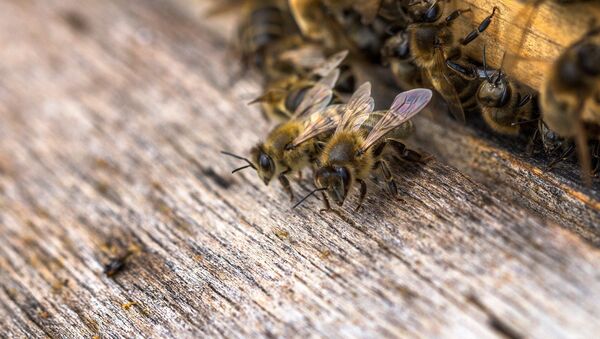Most of the bee deaths occurred in four Brazilian states: 400 million in Rio Grande do Sul, 7 million in São Paulo, 50 million in Santa Catarina and 45 million Mato Grosso do Sul, according to a report by CBS News. Neonicotinoids and fipronil, both agricultural insecticides banned in Europe, are believed to be the specific culprits behind the deaths.
Aldo Machado, vice president of Rio Grande do Sul’s beekeeping association, recently told Bloomberg that his bee colony was completely eliminated 48 hours after some bees began dying.
"As soon as the healthy bees began clearing the dying bees out of the hives, they became contaminated. They started dying en masse," Machado said.
A 2019 investigation by Greenpeace’s Unearthed revealed that more than 1,200 pesticides and weed killers were approved in Brazil in the last three years, despite the fact that the products contain chemicals banned by the European Union.
Since President Jair Bolsonaro took office in January, the country has seen a 27% increase in the use of pesticides compared to the time period in 2018. In fact, the investigation claimed that Brazil is the biggest purchaser of pesticides in the world. Maria Laura Canineu, Brazil director for Human Rights Watch’s Americas Division, also told Unearthed that the government of Brazil continues to approve pesticides without taking steps to prohibit hazardous chemicals.
Bee deaths could significantly affect the global food chain.
According to a May 2018 report by the Food and Agriculture Organization of the United Nations, more than 75% of the world’s food crops “rely to some extent on pollination for yield and quality.”
“The absence of bees and other pollinators would wipe out coffee, apples, almonds, tomatoes and cocoa, to name just a few of the crops that rely on pollination,” the report warns. “Pollinators, such as bees, wild bees, birds, bats, butterflies and beetles, fly, hop and crawl over flowers to help plants fertilize. Pollinator numbers and diversity have declined in the past decades, and evidence indicates that the decline is primarily a consequence of human activities, including climate change, which can disrupt flowering seasons,” the report adds.




